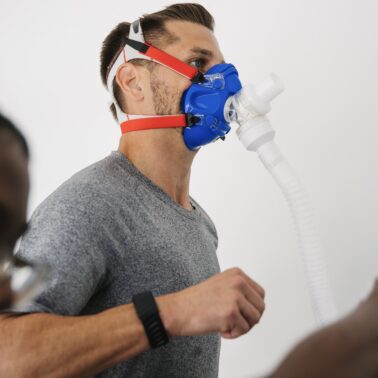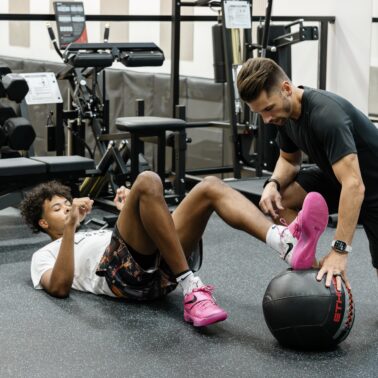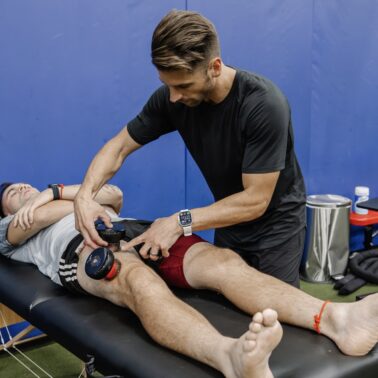“Inflammation is a double-edged sword in sports rehabilitation.”
Adam Loiacono
What You Will Learn
- Understanding the dual nature of inflammation—as both necessary for healing and potentially detrimental if excessive—is crucial.
- How fish oil (omega-3 fatty acids) and Specialized Pro-resolving Mediators (SPMs) are similar at managing inflammation but have different approaches
- How tart cherry juice and curcumin pack a 1-2 punch for reducing soreness and inflammation in athletes.
Inflammation is a double-edged sword in sports rehabilitation. While it’s a natural and essential part of the body’s healing process, excessive inflammation can lead to prolonged discomfort and delayed recovery. Managing inflammation effectively is therefore crucial in rehabilitation settings, particularly for athletes and individuals engaged in high-intensity physical activities. This guide explores four key supplements that can aid in managing inflammation: fish oil, specialized pro-resolving mediators (SPMs), curcumin, and tart cherry juice. Each of these supplements has unique properties that can help reduce inflammation and accelerate the healing process.
Fish Oil (EPA, DHA, and ALA)
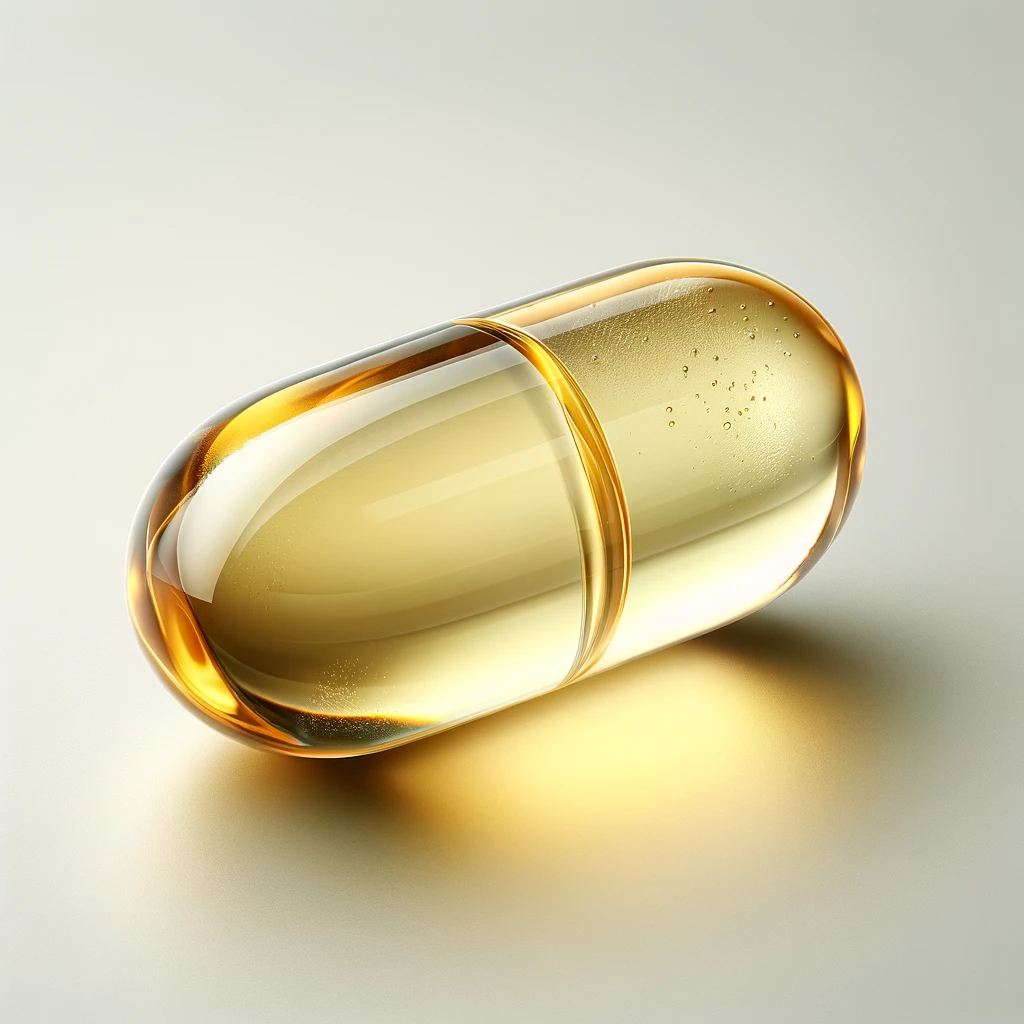
Omega-3 fatty acids, primarily found in fish oil, play a vital role in managing inflammation. These fatty acids, particularly eicosapentaenoic acid (EPA) and docosahexaenoic acid (DHA), are known for their anti-inflammatory properties. Alpha-linolenic acid (ALA), another form of omega-3, is found in plant sources and can be converted into EPA and DHA in the body, albeit inefficiently.
Research has consistently shown that EPA and DHA can modulate the body’s inflammatory response. A study published in the “Journal of Pain Research” revealed that these fatty acids significantly reduce the production of cytokines, which are involved in the inflammation process. By decreasing cytokine levels, EPA and DHA help in reducing overall inflammation, aiding in quicker recovery from injuries.
One particular study found that therapy with EPA and DHA significantly lowered levels of various proinflammatory cytokines, such as IL-6, IL-1β, and TNF-α, after 4 and 8 weeks of therapy. Notably, adults receiving EPA+DHA therapy showed significantly greater reductions in these circulating proinflammatory cytokines compared to those receiving placebo therapy. These findings highlight the potential of EPA and DHA as effective dietary interventions for mitigating the harmful effects of inflammation.
To explore the study further, you can access it through the following link: Supplementation with eicosapentaenoic acid and docosahexaenoic acid reduces high levels of circulating proinflammatory cytokines in aging adults: A randomized, controlled study – PubMed.
Additionally, another related study, “Effects of EPA and DHA on blood pressure and inflammatory factors: a meta-analysis of randomized controlled trials,” also provides insights into the differential effects of EPA and DHA on blood pressure and other inflammatory mediators (C-reactive protein). This study can be accessed through this link: Effects of EPA and DHA on blood pressure and inflammatory factors – PubMed.
Specialized Pro-resolving Mediators (SPMs)
SPMs are derivatives of omega-3 fatty acids and play a crucial role in resolving inflammation. Unlike traditional anti-inflammatory treatments that mainly inhibit the inflammatory process, SPMs actively promote the resolution of inflammation. This is a crucial aspect of healing as unresolved inflammation can lead to chronic pain and other long-term health issues.
Curcumin
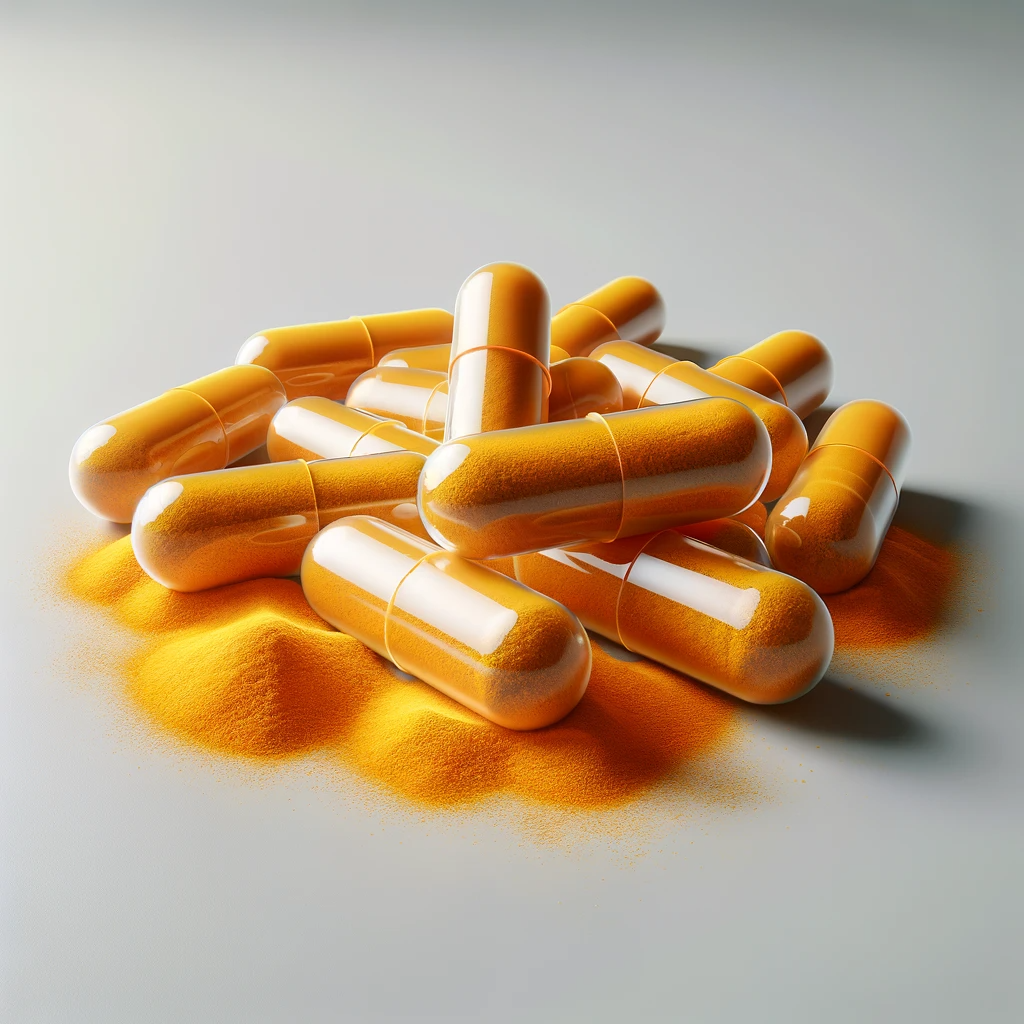
Curcumin, the active compound in turmeric, is renowned for its anti-inflammatory and antioxidant properties. It’s particularly beneficial in sports rehabilitation for its ability to reduce pain and swelling.
A notable study examined curcumin’s role in muscle recovery. Participants who received curcumin supplementation showed a marked reduction in muscle soreness and inflammation markers after intense physical exercise. This makes curcumin an attractive supplement for athletes looking to enhance their recovery process following strenuous workouts or injuries.
For more details, you can access the study here.
Tart Cherry Juice
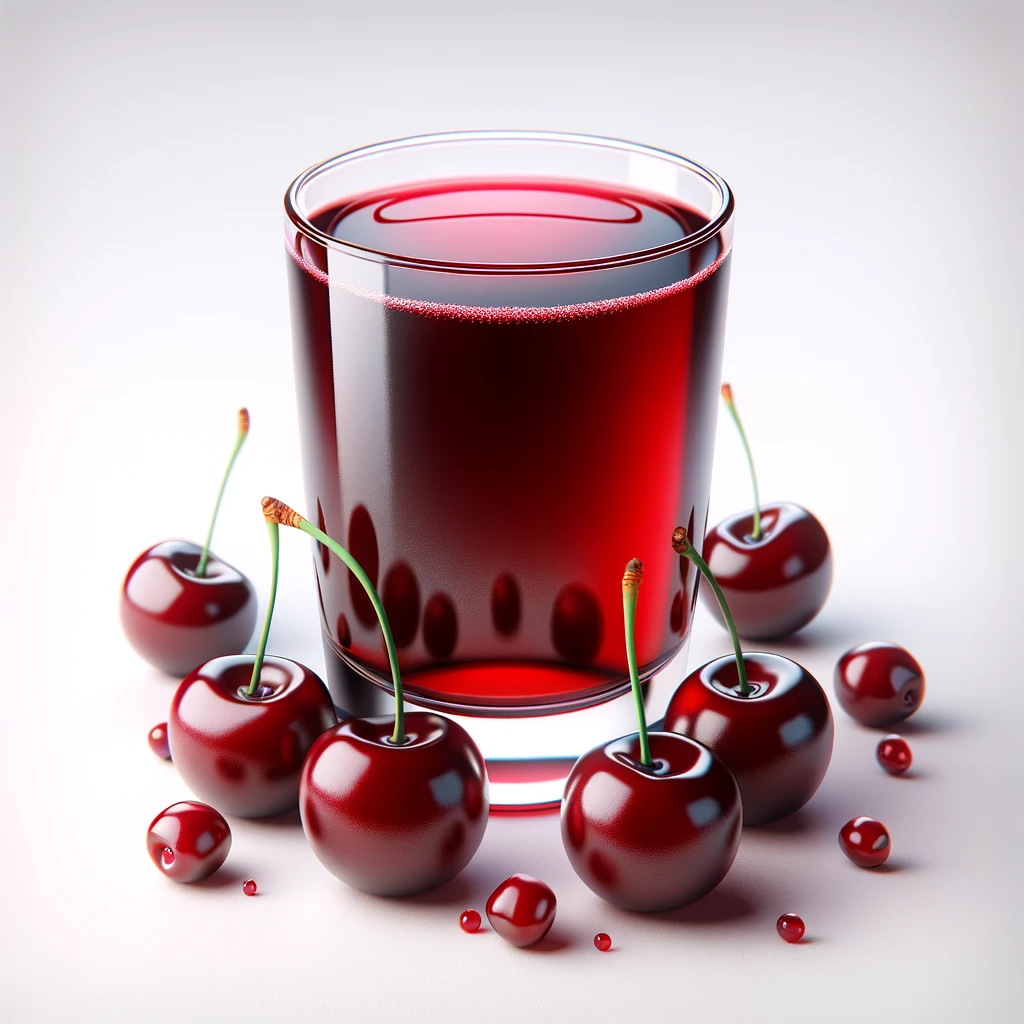
Tart cherry juice is gaining popularity as a natural anti-inflammatory supplement. Rich in anthocyanins and other antioxidants, tart cherry juice has been shown to reduce inflammation and muscle damage.
Antioxidants are compounds that inhibit oxidation, a chemical reaction that can produce free radicals, leading to cell damage. They are vital for maintaining health and are found in various foods, including fruits, vegetables, nuts, and grains. Tart cherry juice is rich in antioxidants, particularly anthocyanins, which are responsible for its deep red color.
Anthocyanins are a type of flavonoid with potent antioxidant properties. They can help reduce inflammation and oxidative stress, potentially aiding in recovery from exercise, reducing symptoms of arthritis, and contributing to overall health. Tart cherry juice’s high antioxidant and anthocyanin content make it a popular choice for those seeking to leverage these health benefits.
Research published in the “Scandinavian Journal of Medicine & Science in Sports” examined the effects of tart cherry juice in athletes. The study found that athletes consuming tart cherry juice experienced less strength loss and reduced muscle pain post-exercise compared to those who did not consume the juice. This suggests that tart cherry juice can be an effective dietary addition for athletes in managing inflammation and enhancing recovery.
For more detailed information, you can view the study here.
Conclusion and Recommendations
Each of these supplements – fish oil, SPMs, curcumin, and tart cherry juice – offers unique benefits in managing inflammation and aiding recovery in rehabilitation settings. While specific dosages can vary based on individual needs and the severity of the condition, it’s important to follow research-backed recommendations and consult with a doctor or sports dietician before starting any supplementation regimen.
Fish oil, with its high EPA and DHA content, should be considered for daily supplementation, especially for individuals prone to chronic inflammation. SPMs offer a more targeted approach to resolving inflammation and can be particularly beneficial following acute injuries. Curcumin, with its potent anti-inflammatory and antioxidant effects, is suitable for regular use, especially post-exercise. Lastly, tart cherry juice (my favorite brand is Cheribundi) can be an excellent natural supplement for athletes to incorporate into their diets to reduce muscle damage and inflammation following activities.
Remember, supplements should complement a well-rounded diet tailored for the specific injury type during your rehabilitation program. Always consult with healthcare professionals to tailor a supplement regimen that best suits your individual needs and health goals.

